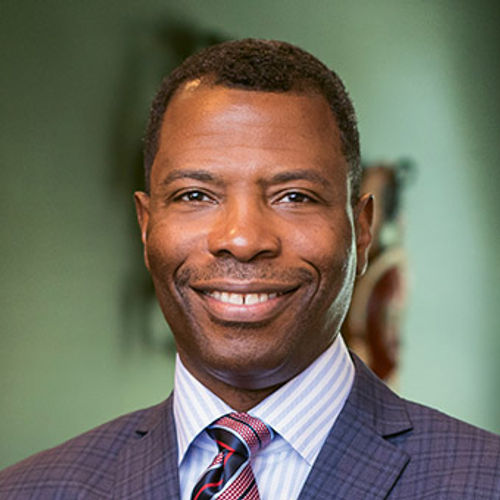Elliott Ferguson, CEO of Destination DC and national chair
of the U.S. Travel Association, has emerged as one of the travel industry’s
leading voices around the Black Lives Matter movement.
But he is also trying to hold together a destination marketing
organization struggling to survive the Covid-19 pandemic.
“We’re on life support,” Ferguson said, adding that his
organization is currently working to bring back furloughed employees. “Not
being part of Paycheck Protection Program or the Cares Act has been very
difficult to us.”

Elliott Ferguson
DMOs were not eligible for PPP relief during the first
rounds of government relief because of their nonprofit or quasi-government
status, something that U.S. Travel has been lobbying to change in any future
relief funding. (Legislation has been introduced in the House and Senate to
amend the Small Business Act to enable destination marketing organizations to
become eligible for loans under the PPP.)
“These things are in place to help organizations continue to
exist,” Ferguson said. “Through U.S. Travel we are working hard to be included
in next iteration of the Cares Act. I need that relief so I can continue to pay
my employees and pay our bills and hopefully have a budget for marketing.”
Destination DC gets 82% of its funding from less than 1% of
Washington’s hotel taxes, funds that have dried up during the pandemic. The
remaining budget comes from membership dues and partnerships.
Ferguson said DMOs across the United States are suffering as
a result.
“We’ve been fortunate in that we’ve only furloughed whereas
several have had to fire over 100 people in some cases,” he said.
Besides paying employees and bills, Ferguson is concerned
about having money for advertising and marketing, which will help D.C. recover.
On the Record
Elliott Ferguson has been vocal about the Black
Lives Matter movement and how corporate America can do better on issues
of systemic racism and bias. Read More
In its recent launch campaign, the Black Travel Alliance, a
group of black travel content creators, called on the travel industry to “work
toward meaningful representation of Black voices” and specifically targeted DMOs
for not enough Black representation marketing campaigns, even from cities and
countries that attract or constitute a large number of Black people.
Ferguson said Destination DC is “absolutely aware of the
need to promote what the Black community has done” in the city, from Frederick
Douglass to go-go music to the museums that reference the Black experience or
African experience, he said.
He said having a Black person at the helm has made diversity
more of an organizational priority.
“We absolutely are more sensitive to that, but I’m equally
sensitive to representing the diversity of Washington as a destination,” he
said. “We have a lot of different ethnicities here. But I am clearly much more
sensitive and pay attention to when or if there is a lack of diversity in
anything we do. It does not mean that every single ad or piece of marketing has
a Black person, but if we do a campaign you’ll see balance and the Black
community represented in our marketing and advertising.”
At the end of the day, Ferguson said that this vision helps
Destination DC accomplish what it is meant to do.
“We just want to make sure that we’re focusing on bringing
as many people as we can to Washington, D.C.,” he said. “The Black experience
in DC is very appealing to not just Black people. We appreciate the opportunity
to promote D.C. and the history that we have here. And the history as the
nation’s capital through the Smithsonian and so many other museums to the
global community that is interested in learning more about so many experiences.”